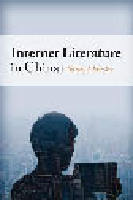Chinese Internet Stories

Internet Literature in China
Author: Michel Hockx
Price: US $40
Hardcover, 272 pages
Published by Columbia
University Press
Around the year 2000 Internet literature boomed in China, outselling all conventionally published books in main city bookshops. Unlike the many U.K. and U.S. scholars that highlight censorship over the Internet in China, Professor Michel Hockx, author of Internet Literature in China, has expanded his research to an exploration of network literature content, and exactly what its authors are trying to express. He holds that censorship has actually been present throughout every period of China’s long history, yet has impeded neither literary research nor appreciation. Censorship, therefore, does not constitute a reason to disregard any form of literature. What we do need to examine is the way in which Chinese electronic literature innovates and challenges conventional literary models, so spurring changes and adjustments to China’s publication system.
Lydia H.Liu, author of The Freudian Robot: Digital Media and the Future of the Unconscious, highly recommends the book. “Michel Hockx provides a rare look at the process of social transformation that has touched the intimate lives of people and communities through web portals, apps, microblogs and other online media. His refreshing ethnography captures a precarious moment of post-socialist literary innovation, transgression, and aberrations in its full complexity. This book is the best introduction available in English to the psychic landscape of contemporary Chinese netizens who know how to play with censors to articulate their personal desires, fantasies, phobias, and exhibitionism.”
As a well-known figure in the field of modern Chinese literature, Michel Hockx is well positioned to bridge the gap between literary studies and Internet culture. He obtained a PhD at Leiden University in the Netherlands, and is a professor of Chinese at the School of Oriental and African Studies (SOAS), University of London. He is also the founding director of the SOAS China Institute. Hockx studied Chinese language and literature in the Netherlands and China. He is the author of A Snowy Morning: Eight Chinese Poets on the Road to Modernity (1994), The Literary Field of Twentieth-Century China (1999), Questions of Style: Literary Societies and Literary Journals in Modern China, 1911-1937 (2003), and Culture in the Contemporary PRC (2006).
In Internet Literature in China the author first considers the popularity of China’s Internet literature. He recalls, rongshuxia.com the first commercially operated website for creative writing, and the successful business model of the original literature website qidian.com. He analyzes the writing styles of such representative authors as Chen Cun, Wen Huajian, Han Han, and their impact, and concludes that network literature is a fertile breeding ground for written works that at the same time challenges censorship authorities.
Hockx believes that cyber space has created, in tandem with the spread of computer and Internet technologies since the 1990s, a vast platform for Chinese literature lovers. The new trend of creativity undoubtedly enriches China’s literary and esthetic traditions through brand new forms, subjects and experience.
Internet literature makes prominent contributions to the development of Chinese literature as a whole. New writers appear each day on proliferating publication platforms, giving readers the chance to discover and read more literary works in their leisure time and on the subway traveling to and from work.
David Kurt Herold of the Hong Kong Polytechnic University has pointed out that neither politics nor democracy is the most significant issue for Chinese netizens – a view with which Michel Hockx agrees in his book. Unlike other Western scholars, who regard “the Great firewall” as the scourge of individual rights, most Chinese netizens see it as something existing in name only. This is because, due to the huge volume of network literature as compared with social media, censorship has become more relaxed. In a sense, literary creation and online expression promote China’s social transformation by constantly detecting and pushing the ever-shifting ideological bottomline of government censorship.
New publishing platforms have steadily appeared, from the first e-monthly New Threads, BBS and online forums, to literature websites like rongshuxia.com and social media websites, and onward to mobile self-media communities. Chinese netizens are constantly discovering ways of infusing reality with a new irony.
The author concludes that rapid development of modern technologies such as portal websites, social media, and mobile apps have changed people’s lives and creative activities, equipping everyday Internet users with the tools to express their personal ideas and opinions to the full extent.
The most obvious example is cancer patient Lu Youqing’s Diary of Death, first published on rongshuxia.com, which sparked the unlimited creative potential of online writers of diary and narrative literature. Another is qidian.com, a successful business model that publishes numberless works of fiction without any ISBN requirement, so further stoking the explosion of Internet literature creativity. The focus of heilan.com is on offering business opportunities to writers of novels and other types of literature, including that on modern visual arts and film. It uses mobile technologies to avoid censorship and open up business and creation opportunities. WeChat, micro-blogs and other social media websites are also more direct forms of expression.
The book sets out to give a panoramic, objective picture of China’s Internet culture. The author holds that even though the government may ban certain publishing projects, the diversified development of constantly improving technology has substantially expanded China’s publication space and communication modes. There will always be channels for the spread of quality literature, and the Internet is just one.
Creator of the chinastory.org of the Australian Center on China in the World (CIW) at the Australian National University Geremie R. Barmé says of the book, “This important account of the other China is timely and incisive. It reveals a virtual People’s Republic that is wise, creative and resilient. Hockx speaks insightfully of China’s post-socialist period and guides us toward its gravid and disruptive future.”

